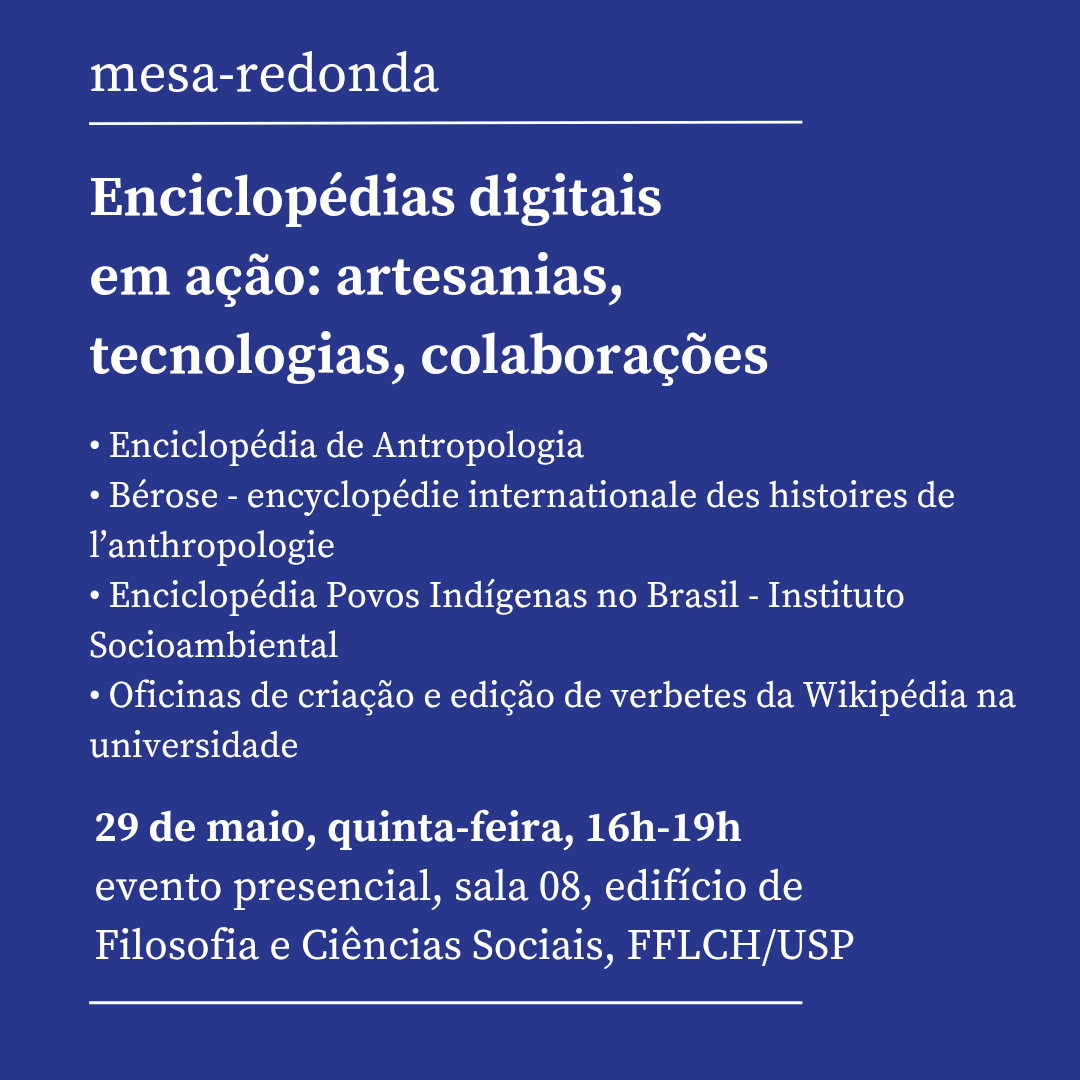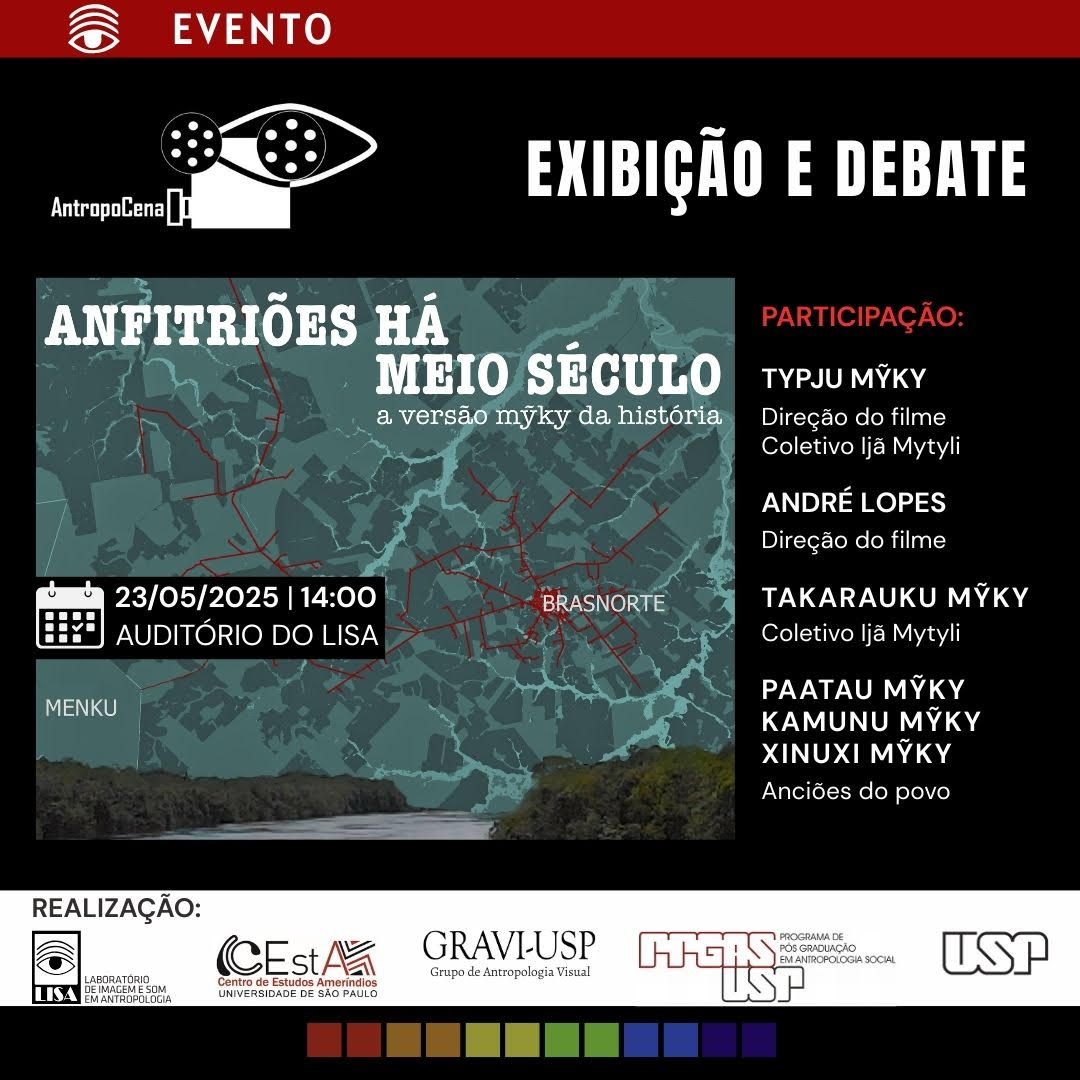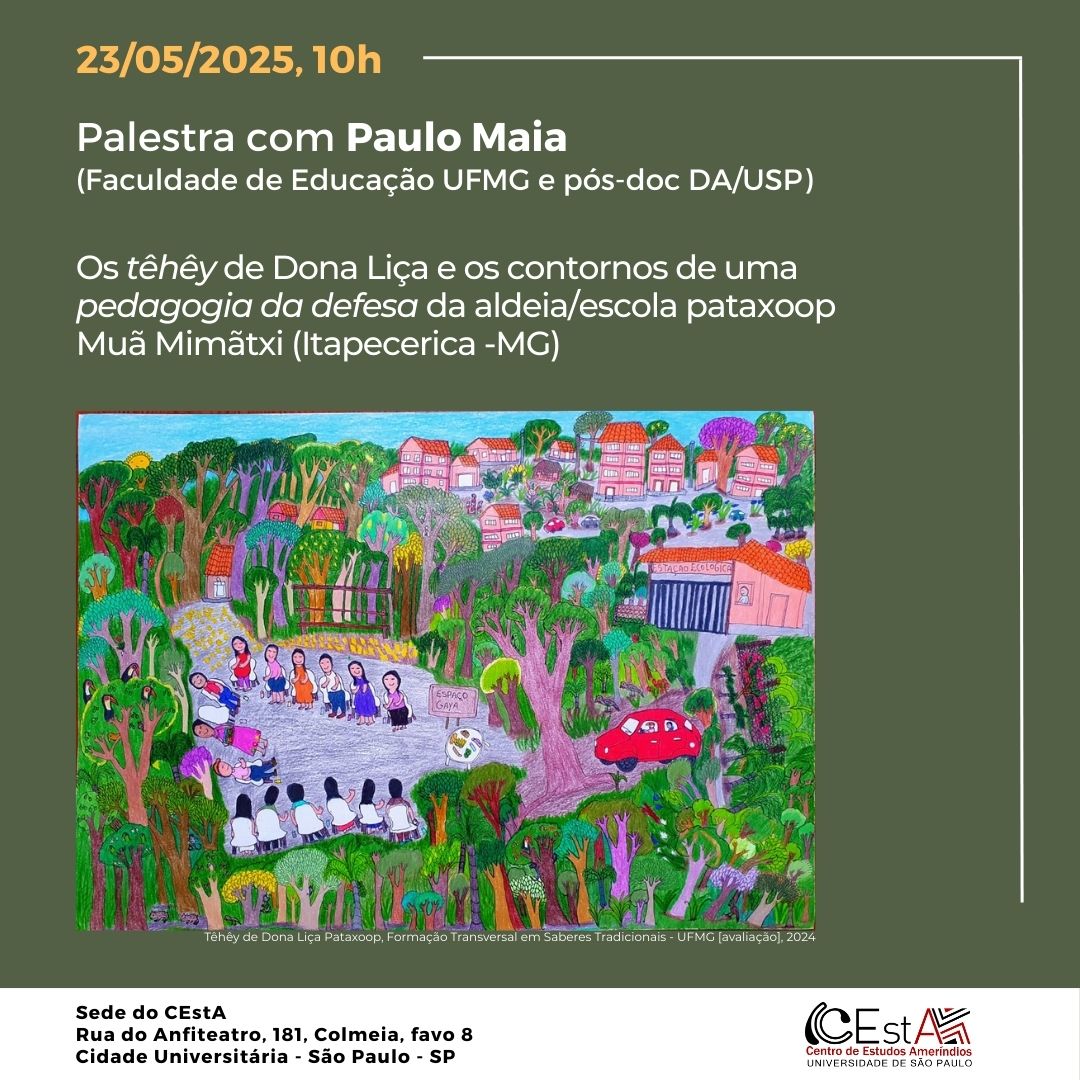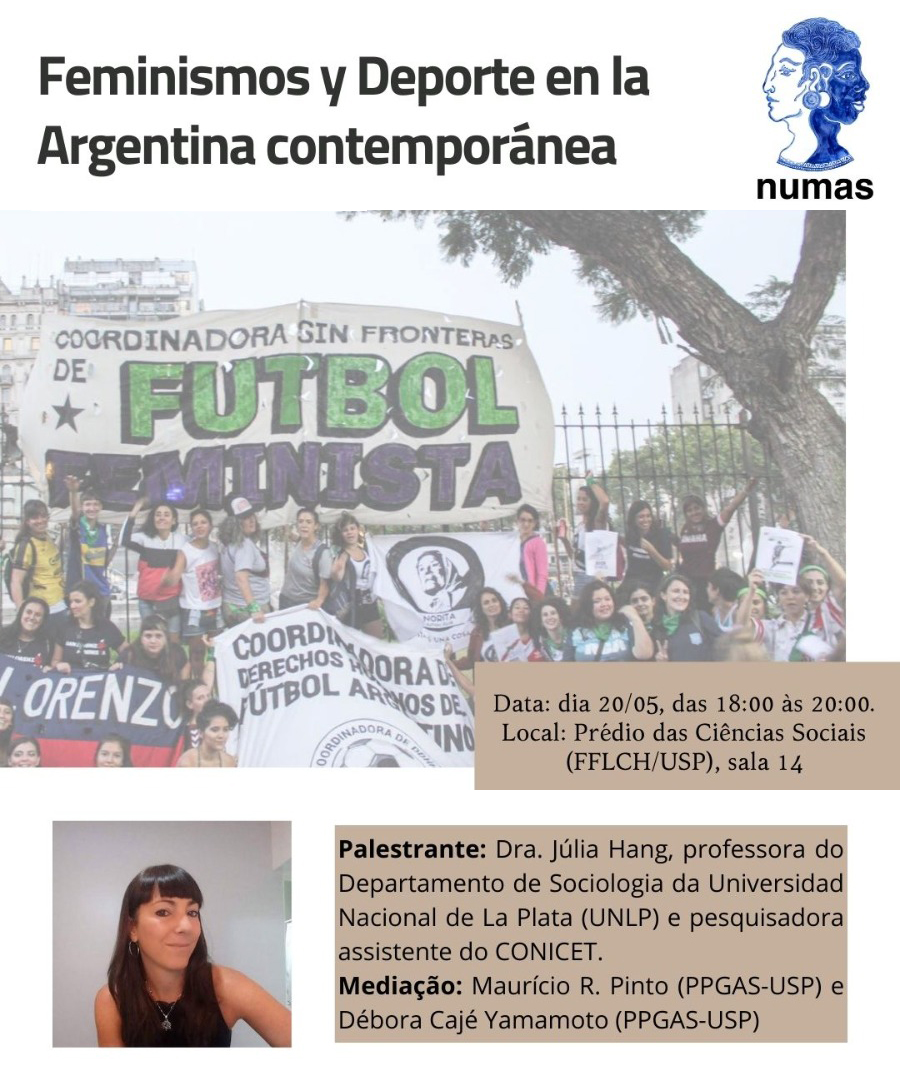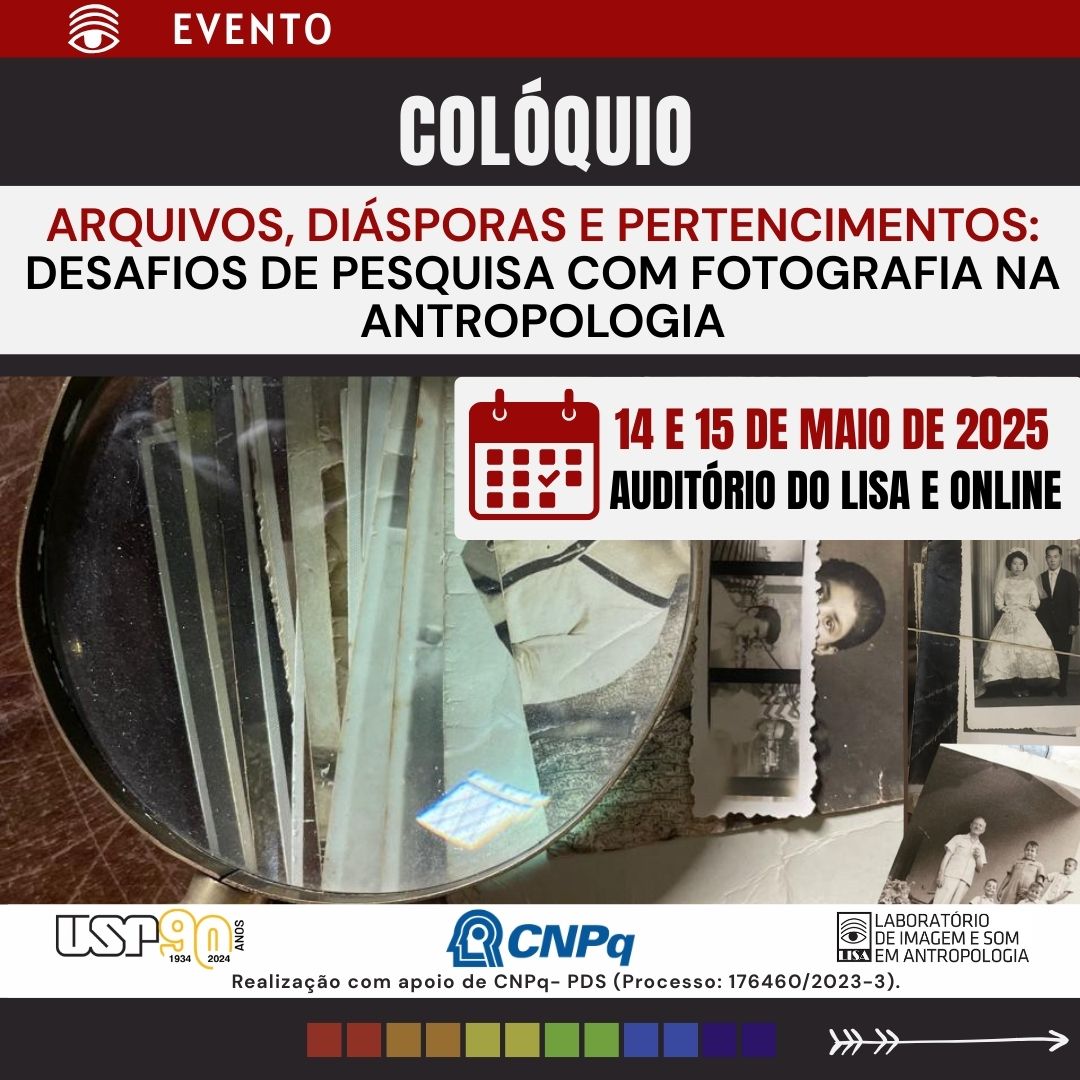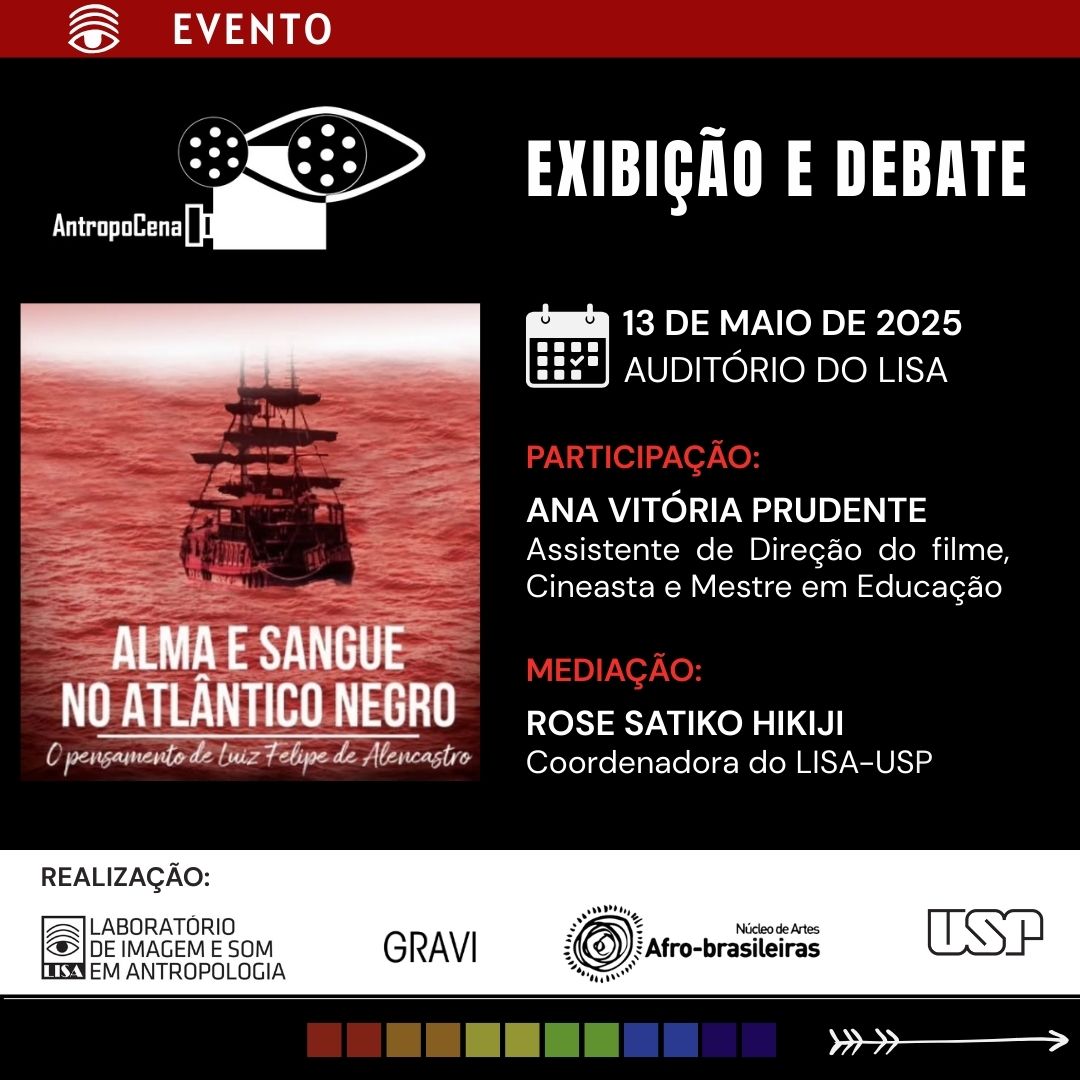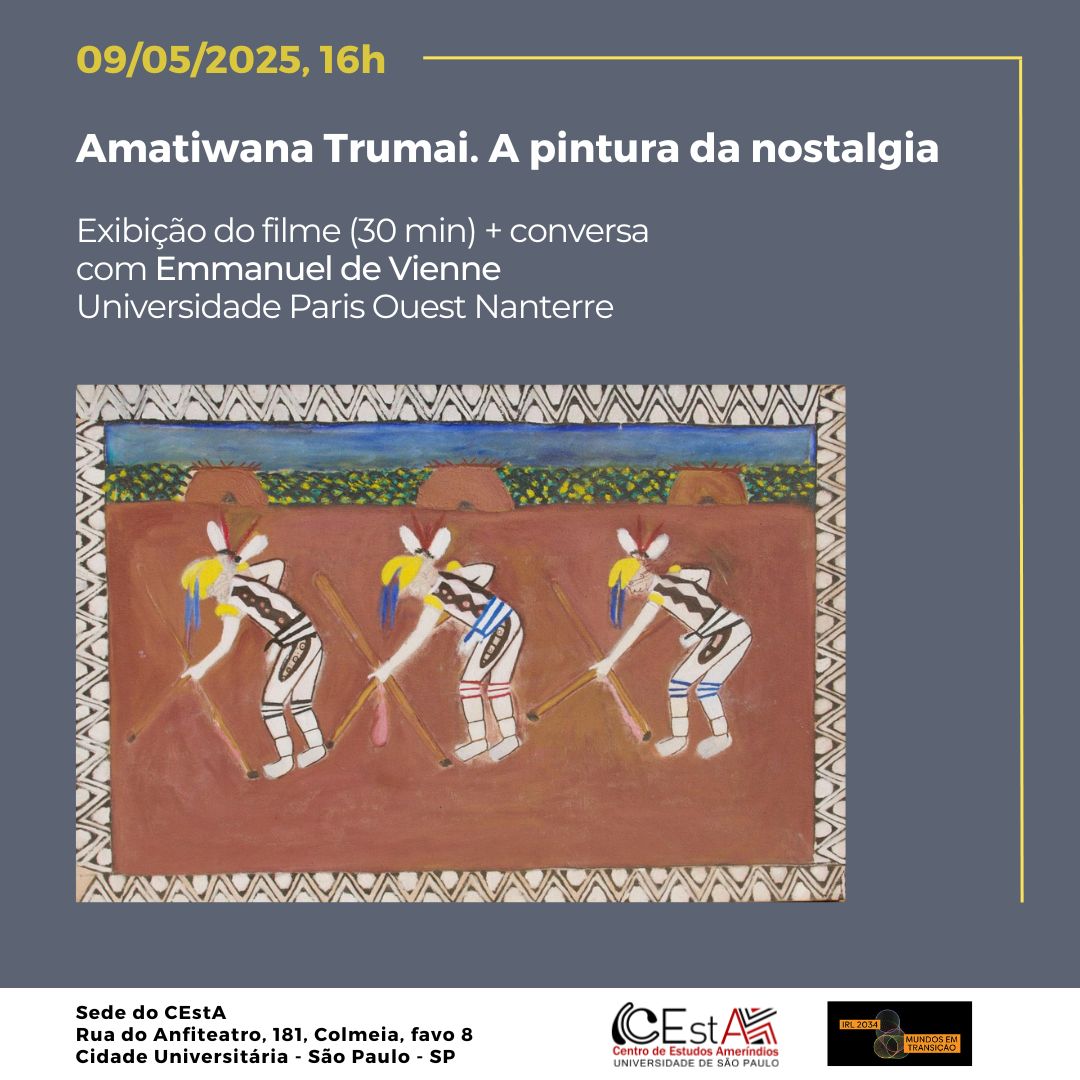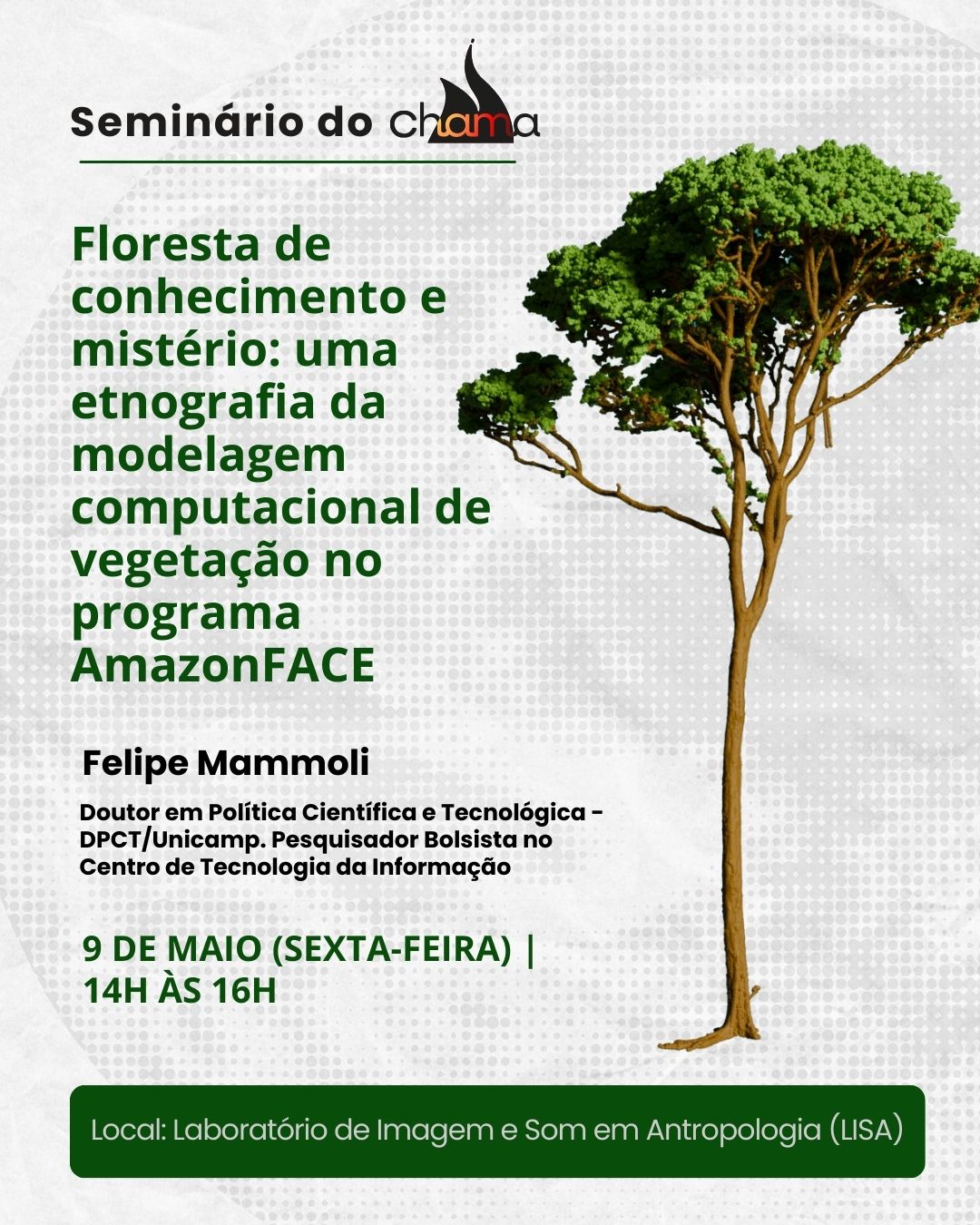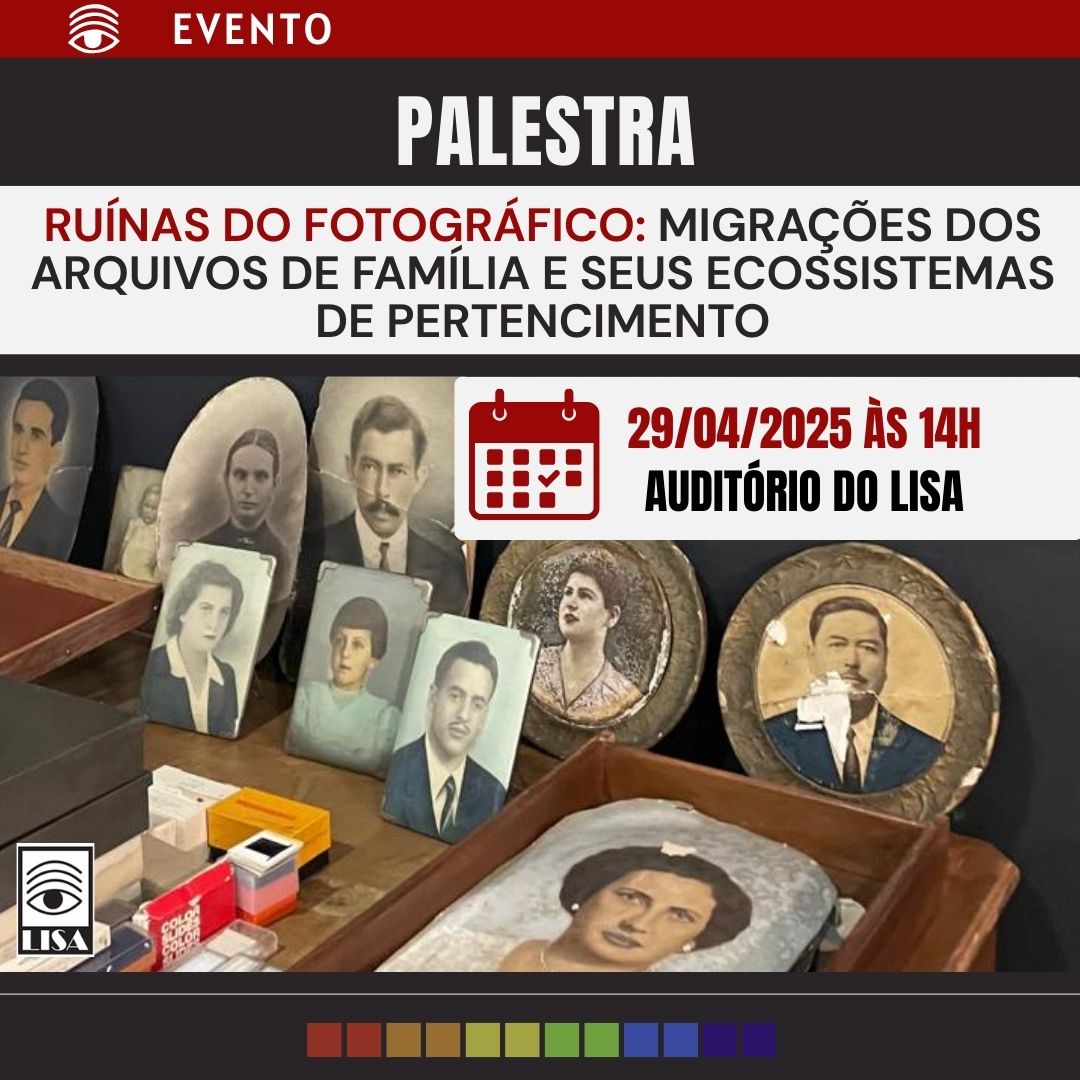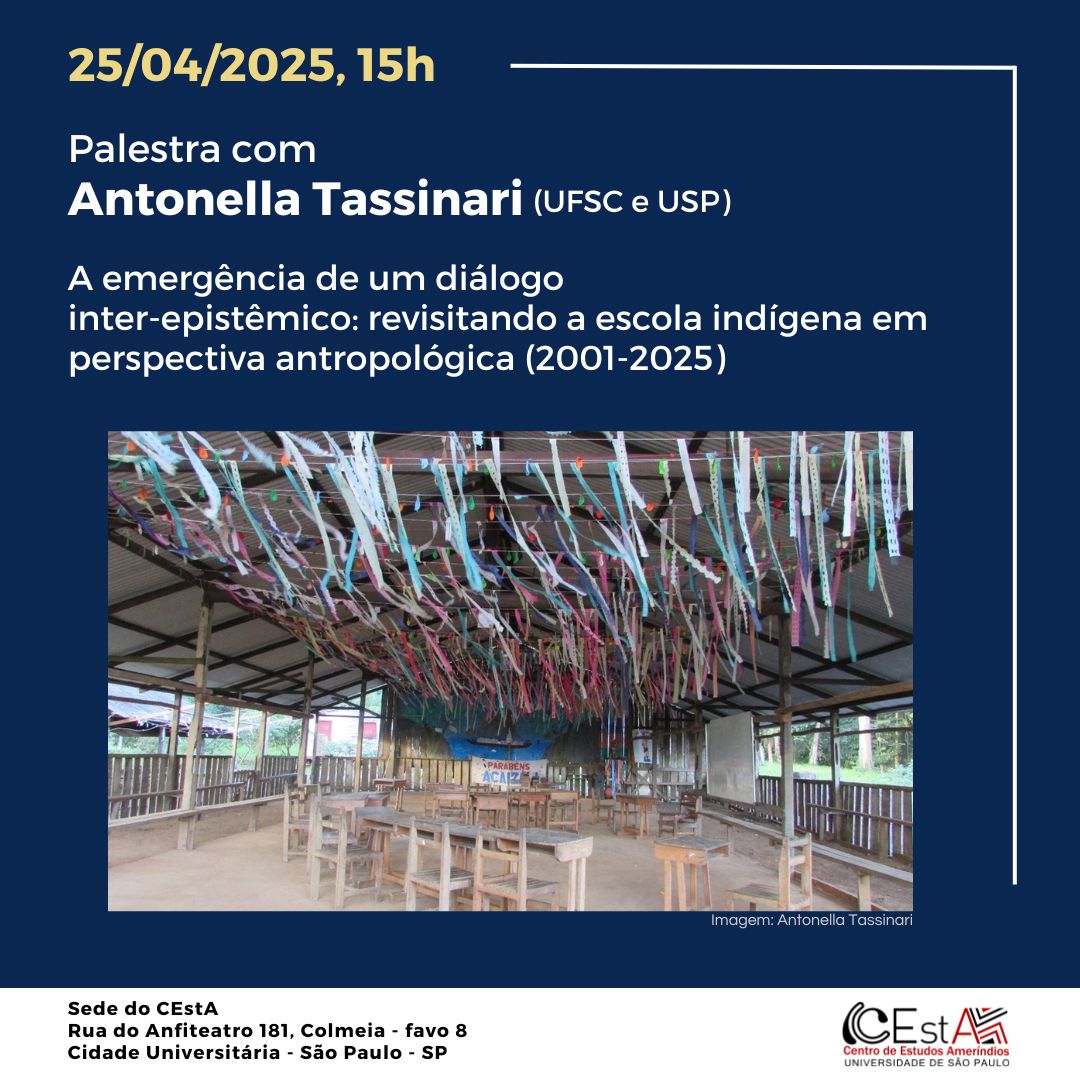Events
The Encyclopedia of Anthropology will celebrate its 10th anniversary in 2025! This date calls for celebrations, but above all for assessments and reflections on the work carried out in order to plan future projects.
In this sense, we invite the public to the roundtable "Digital encyclopedias in action: crafts, technologies, collaborations", organized in partnership with the Ethnographic Laboratory of Technological and Digital Studies at USP.
The event will bring together scientific dissemination projects for an exchange of experiences on the production of digital encyclopedias, considering the challenges of collaborative management, editing and writing. In addition to EA, we will talk about the encyclopedias Indigenous Peoples in Brazil, from the Socioenvironmental Institute, and Bérose - encyclopédie internationale des histoires de l’anthropologie; and also about workshops on creating and editing Wikipedia entries, which have been held at the university, promoted by Wikimedia Brasil.
The panel will feature the participation of Fernanda A. Peixoto (EA/Bérose), André S. Bailão (EA), Carolina Parreiras (LETEC/USP), Tatiane M. Klein (PIB/ISA) and Isabela Tosta (Labjor/Unicamp), as well as members of the editorial committees. We will discuss the potential and limitations of the “encyclopedia” format; the transformations of projects over time and their scope and uses; the production (artisanal and collaborative) of entries and its challenges; and new artificial intelligence technologies.
The event will be in person and open to the public.
LISA, CEstA and GRAVI invite you to the screening of the film "Hosts half a century ago: the mỹky version of history" on May 23, 2025, at 2 pm, in the LISA auditorium.
Co-produced by LISA in partnership with Ijã Mytyli Manoki and Mỹky Cinema Collective, the film had its premiere at a festival organized by the Latin American Coordinator for Cinema and Indigenous Peoples (CLACPI) and New York University (NYU). The screening took place on April 25, 2025 and was part of a side event of the United Nations Permanent Forum on Indigenous Issues. Director Typju Mỹky also participated in the Forum, as the first Mỹky person to represent his people at the United Nations (UN), and denounced the current impasse in which the process of demarcation of his land finds itself, after it was canceled by the Minister of Justice of the Bolsonaro government, Anderson Torres. The screening of the film, which addresses the theme of the Mỹky territory, included a session commented in person by the directors and professors Faye Ginsburg, Professor of Anthropology and coordinator of the Center for Media, Culture and History at NYU, and Amalia Córdova, curator of the Smithsonian Center for Folklife and Cultural Heritage. The documentary also participated on May 4 in the Margaret Mead Film Festival, an important ethnographic film festival that has been held for over 40 years at the American Museum of Natural History in New York.
The documentary will have its official premiere next week, on May 22nd, at 8 pm, in a session at CineSesc and will also be shown in the LISA auditorium, as part of the AntropoCena project, in partnership with the Center for Amerindian Studies (CEstA-USP) and with the Visual Anthropology Group (GRAVI-USP), in the session on the 23rd, at 2:00 p.m. These sessions will be attended by a delegation of five Mỹky representatives, made up of filmmakers and elders. They are coming to São Paulo for the first time and will present this work to the public, along with other members of the team. André Lopes, one of the film's directors, is a researcher at GRAVI-USP and defended his doctorate at PPGAS-USP in 2022. Since 2012, André has been making films in partnership with indigenous interlocutors, with support from LISA in finalizing the work.
AntropoCena is an initiative of LISA and aims to bring to the public the audiovisual production carried out by USP researchers, through exhibitions and debates.
- The event will take place at Rua do Anfiteatro, nº 181, favo/room 10, University City, SP
- Free entry, subject to space limitations
- No registrations
We look forward to seeing you!
TALK WITH PAULO MAIA
(UFMG School of Education and post-doctorate DA/USP)
Têhêy is the name given by the Pataxoop to both a type of fishing net and to the drawings on paper through which they practice their own form of condensed writing also called “knowledge fishing”. The têhêy are used in the classroom as a pedagogical resource, especially in the classes on culture and uses of the territory taught by teacher Liça Pataxoop, who has a collection of several hundred têhêy. Pedagogy of defense, in turn, is the way in which chief Kanátyo Pataxooop summarizes the daily work of resistance considering the teachings inherited from the Yãmixoop in defense of the land, the village, the forest and the indigenous school. Muã Mimãtxi teaches us pedagogies attuned to the challenges posed by the ongoing ecological collapse, in addition to echoing the theoretical, practical and conceptual challenges of relational approaches in the field of anthropology, education or both. In this presentation, I intend to explore the contours of a pedagogy of defense, with a special focus on the fishing tehêy of Dona Liça's knowledge, taking into account the experience accumulated in different research projects [2019-2022], teaching [2023] and extension [2024-2025] at UFMG in collaboration with the Pataxoop village/school Muã Mimãtxi.
Professor Julia Hang (Universidad Nacional de La Plata, Argentina)
Professor in the Department of Sociology at Universidad Nacional de La Plata (UNLP) and assistant researcher at CONICET. Moderation and debate: Mauricio Rodrigues Pinto and Débora Cajé Yamamoto
broadcast on the FFLCH YouTube channel
The lecture will address the intersections between gender, sports and politics, based on a reflection on how Argentine feminism has put pressure on the world of sports in recent years. The case of female fans, athletes, managers and club members who have organized themselves politically to change sports, thus also transforming Argentine society, will be presented.
From May 14 to 15, 2025, LISA-USP will host the colloquium "Archives, diasporas and belongings: research challenges with photography in anthropology", organized by Fabiana Bruno, a senior postdoctoral fellow at CNPq. The event will feature two panels and two research workshop sessions. The colloquium will be opened by Sylvia Caiuby Novaes (GRAVI-USP) and the first panel "Family archives, orphan archives and other emerging photography collections" will feature the participation of Paula Roush (Found Photo Foundation - London South Bank University); Clarice Ehlers Peixoto (INARRA-UERJ); Fabiene Gama (NAVISUAL – UFRGS) and Oscar Guarín Martinez (SENSOLAB - Pontifical Javeriana University) and will be mediated by Suely Kofes (PPGAS- IFCH, LA’GRIMA-Unicamp).
The second panel, “Archives, platforms and other artifacts: diasporas and image belongings,” will feature Cornelia Eckert and Ana Luiza Carvalho da Rocha (NAVISUAL and BIEV-UFRGS); Andrea Barbosa (VISURB-Unifesp); Mariana Petroni (LA’GRIMA-Unicamp; Unilab) and Edgar Teodoro da Cunha (NAIP-Unesp), mediated by Tatiana Lotierzo (postdoc USP). The panels will be coordinated by Fabiana Bruno (GRAVI-USP; LA’GRIMA- Unicamp).
The event will take place from 9:30 am to 5:30 pm, in the auditorium of LISA-USP. There will be online transmission on YouTube (https://www.youtube.com/@lisausp) of the panels in the morning. The event is organized by GRAVI (Visual Anthropology Group) and LISA-USP (Image and Sound Laboratory in Anthropology).
PROGRAM:
May 14th
Morning
Opening:Sylvia Caiuby Novaes (GRAVI-USP),
At 9:30 am - LISA-USP Auditorium
(hybrid modality, broadcast via YouTube channel)
Link: https://youtube.com/live/o2fDkBL-BFc
Panel 1 – Family archives, orphan archives and other emerging photography collections
At 10 am - LISA-USP Auditorium
Coordination: Fabiana Bruno (GRAVI-USP; LA’GRIMA-Unicamp)
Mediation: Suely Kofes (PPGAS-IFCH, LA’GRIMA-Unicamp)
Paula Roush (Found Photo Foundation - London South Bank University)
Clarice Ehlers Peixoto (INARRA-UERJ)
Fabiene Gama (NAVISUAL – UFRGS)
Oscar Guarín Martinez (SENSOLAB - Pontificia Universidad Javeriana)
Afternoon
RESEARCH WORKSHOP
From 3:00 pm to 5:30 pm – LISA-USP Room
Coordination: Fabiana Bruno (GRAVI-USP; LA’GRIMA-Unicamp)
Activity aimed at researchers who are part of visual anthropology and graphic arts centers and laboratories. During the two meetings, participants will share experiences of ongoing research on “photo archives” and “emerging collections”. The purpose is to discuss ways of conducting research with image collections in anthropology.
May 15
Morning
At 9:30 am - LISA-USP Auditorium
(hybrid modality, broadcast via YouTube channel)
Link: https://youtube.com/live/eYFGXLfR_nA
Panel 2 – Archives, platforms and other artifacts: diasporas and image belongings
Coordination: Fabiana Bruno (GRAVI-USP; LA’GRIMA-Unicamp)
Mediation: Tatiana Lotierzo (post-doc USP)
Cornelia Eckert and Ana Luiza Carvalho da Rocha (NAVISUAL and BIEV-UFRGS)
Andrea Barbosa (VISURB-Unifesp)
Mariana Petroni (LA’GRIMA-Unicamp; Unilab)
Edgar Teodoro da Cunha (NAIP-Unesp)
At 1:00 p.m. – Closing
Afternoon
RESEARCH WORKSHOP
From 3:00 p.m. to 5:30 p.m. – LISA-USP Room
Coordination: Fabiana Bruno (GRAVI USP; LA’GRIMA-Unicamp)
Activity aimed at researchers who are part of visual anthropology and graphic arts centers and laboratories. During the two meetings, participants will share experiences of ongoing research on photography archives and other emerging image collections. The purpose is to discuss ways of conducting research with image collections in anthropology.
Participants:
Aline Maffi (NAIP-Unesp)
Matheus Oliveira (NAIP-Unesp)
Andrea Barbosa, Andrea D'Amato, Gabriela Carvalho, Kennedy Valério and Milena Cidrão (Fotoafeto Collective)
Kennedy Valério (VISURB and PPGCS/Unifesp)
Andréa Silva D’Amato (VISURB and PPGCS/Unifesp)
Gabriela Carvalho (VISURB and PPGA/UFBA)
Cristina Lima (NAVISUAL/APOYOnline)
Gabriela Aguiar (NAVISUAL/PPGAS/UFRGS)
Melissa Schuster (NAVISUAL/UFRGS)
Daniel Néres (NAVISUAL/UFRGS)
Mariana Florian (Sensolab - Javeriana University)
Rodrigo Baroni (LA’GRIMA-Unicamp)
Tayná Almeida (La’grima-Unicamp)
Organization:
Fabiana Bruno, PDS CNPq, Process: 176460/2023-3
Realization:
LISA-USP
GRAVI-USP
The Laboratory of Image and Sound in Anthropology (LISA-USP), the Visual Anthropology Group (GRAVI-USP) and the Center for Afro-Brazilian Arts at USP invite you to the AntropoCena session of the film "Alma e Sangue no Atlântico Negro - O pensamento de Luiz Felipe de Alencastro", directed by Celso Prudente, professor at the School of Education at the University of São Paulo (FEUSP), with assistance from Ana Vitória Prudente, who will be present to discuss the work.
Ana Vitória is a PhD candidate in Education at USP, has a master's degree in Education from the Federal University of São Paulo (UNIFESP), a bachelor's degree in Performing Arts from the State University of Campinas (UNICAMP) and a degree in Arts from the University of Évora, in Portugal. She works on the educational programs of the São Paulo State Symphony Orchestra (OSESP) and the Campos do Jordão Festival. She is a curatorial and production assistant for the International Black Cinema Festival (MICINE) and a production assistant for the Quilombo Academia Program on Rádio USP 93.7 FM.
With a duration of 37 minutes, "Alma e Sangue no Atlântico Negro - O pensamento de Luiz Felipe de Alencastro" was released in 2024 and was produced by Canal Futura, part of the Roberto Marinho Foundation. In a roundtable discussion with black personalities, the documentary is based on the political scientist's concept to discuss the strengths and challenges of the black population in Brazil.
The event will take place on National Day of Denunciation against Racism, May 13, 2025, at 7:00 p.m., in the LISA auditorium located at Rua do Anfiteatro, nº 181, favo/sala 10, Cidade Universitária, SP. There is no registration and admission is free, subject to space limitations. Participants will receive a certificate, which will be sent by email within 10 days after the event (request link: https://forms.gle/q5Fk63mjsVSvgNZE6).
AntropoCena is an initiative of LISA and aims to bring audiovisual productions by USP researchers to a wider audience, through screenings and debates at LISA.
- Free entry, subject to space limitations
- No registrations
- Certificate of participation, which will be sent by email
Amatiwana Trumai. The painting of nostalgia.
Film screening (30 min) + conversation with Emmanuel de Vienne (University Paris Ouest Nanterre)
What kind of Amazon emerges from the contemporary effort of computational modeling to try to predict the effects that climate change will have on the forest? In his research that will be presented this Friday, May 9, Felipe Mammoli, PhD in Science and Technology Policy - DPCT/Unicamp, starts from the Anthropology of Science and Science and Technology Studies (STS) to discuss how computational and ecological issues mix in the practices of knowledge production about the future of the Amazon rainforest. Based on an ethnography at the Computational Modeling Laboratory of the international research program on the Amazon, AmazônFACE, Mammoli proposes that there is a new Amazon rainforest taking shape, one that is not made up of living and non-living beings and is not located in South America, but rather a disaggregated forest, composed of digital data and distributed globally in several global environmental data systems. The event will take place at the Laboratory of Image and Sound in Anthropology (LISA).
The Laboratory of Image and Sound in Anthropology (LISA-USP) will host on April 29, 2025, at 2:30 p.m., the lecture "Ruins of photography: migrations of family archives and their ecosystems of belonging" by researcher Dr. Fabiana Bruno, a postdoctoral fellow at the Department of Anthropology at USP supervised by Professor Dr. Sylvia Caiuby Novaes.
The lecture will address the context and policies of “emerging collections” formed with abandoned or discarded photos, in particular, vernacular family photographs unlinked from personal albums. The starting point will be the presentation of an overview of the stories of three “emerging collections” researched: Arab Image Foundation (AIF), Lebanon; Found Photo Foundation, England; and ACHO – Arquivo Coleção de Histórias Ordinárias, Brazil.
In these emerging collections, the collected and sheltered vernacular photographs – from diverse sources – acquire other ways of survival, when they are destined for a “second life” in re-gatherings, within the scope of “anarchical” initiatives (Seligmann-Silva, 2023) in different places around the world. In what way does the way of life of these photographs, when gathered in other archival environments, devoid of family belongings, point to other epistemologies of images and archives in anthropology?
The “ruins” (Tsing, 2019; 2022) of family albums, the destitution of their ecosystems of belonging and the “survival” and “assembly and reassembly” of these images (Warburg, 2010; and Didi-Huberman, 2013) are some of the topics discussed in the lecture.
The topic of indigenous school education has received renewed anthropological interest over the past twenty-five years, in line with changes in legislation resulting from the 1998 Constitution and the indigenous movement demanding schooling and access to higher education and postgraduate studies. Recent ethnographies of indigenous schools have revealed the articulation of everyday school life with several other spheres of social life (shamanism, corporality, notion of person, gender, social and political organization, among others). Despite the difficulties in managing indigenous schools in Brazil, several experiences have managed to transform their daily lives in such a way as to make room for non-hegemonic sources of knowledge, non-human teachers and alternative processes of teaching and learning. I suggest that the grounds of these schools are privileged spaces for the emergence of a more equitable inter-epistemic dialogue, since they are anchored in the daily life of the villages, with their own dynamics and temporalities.


